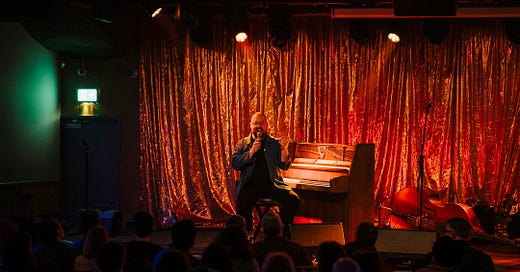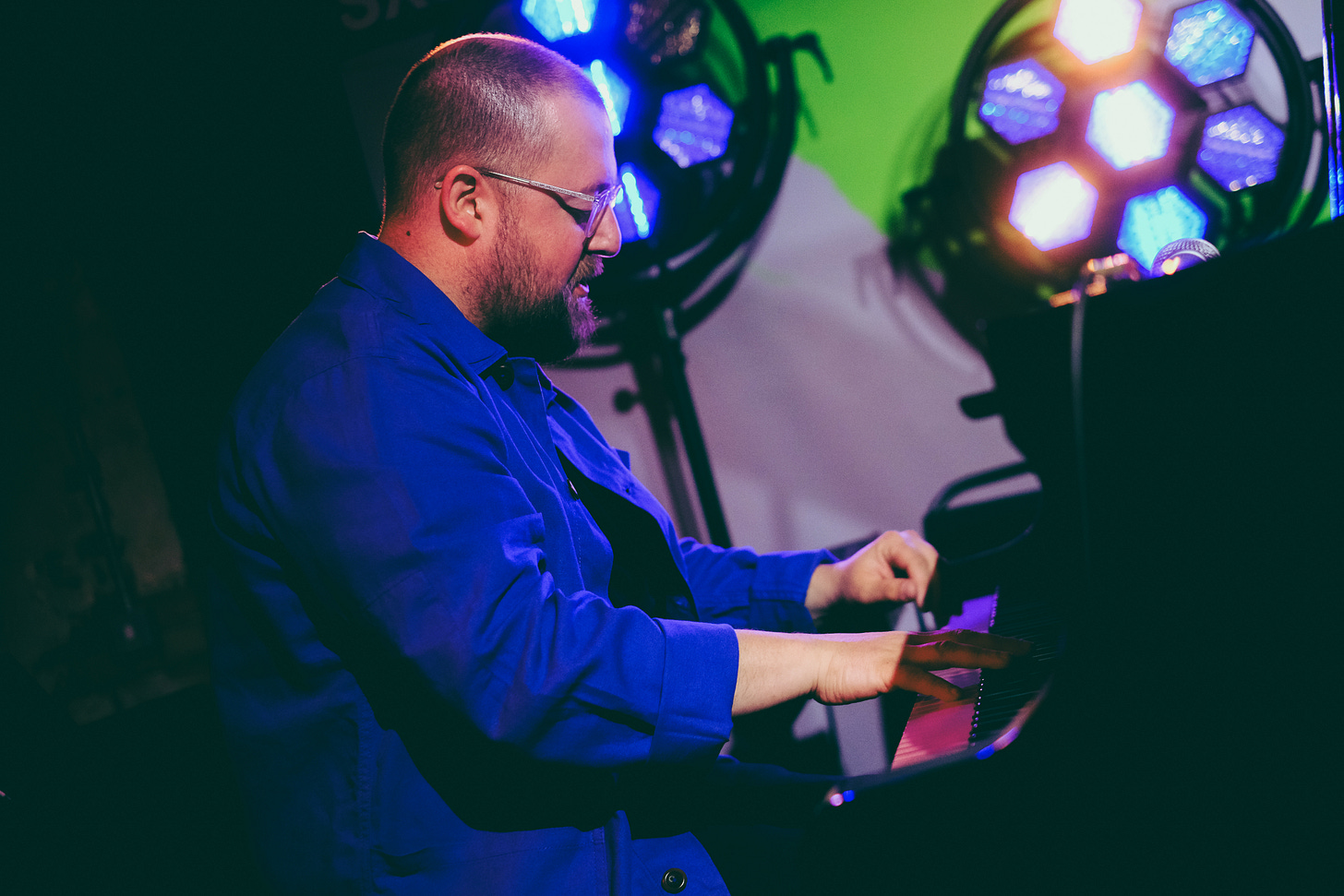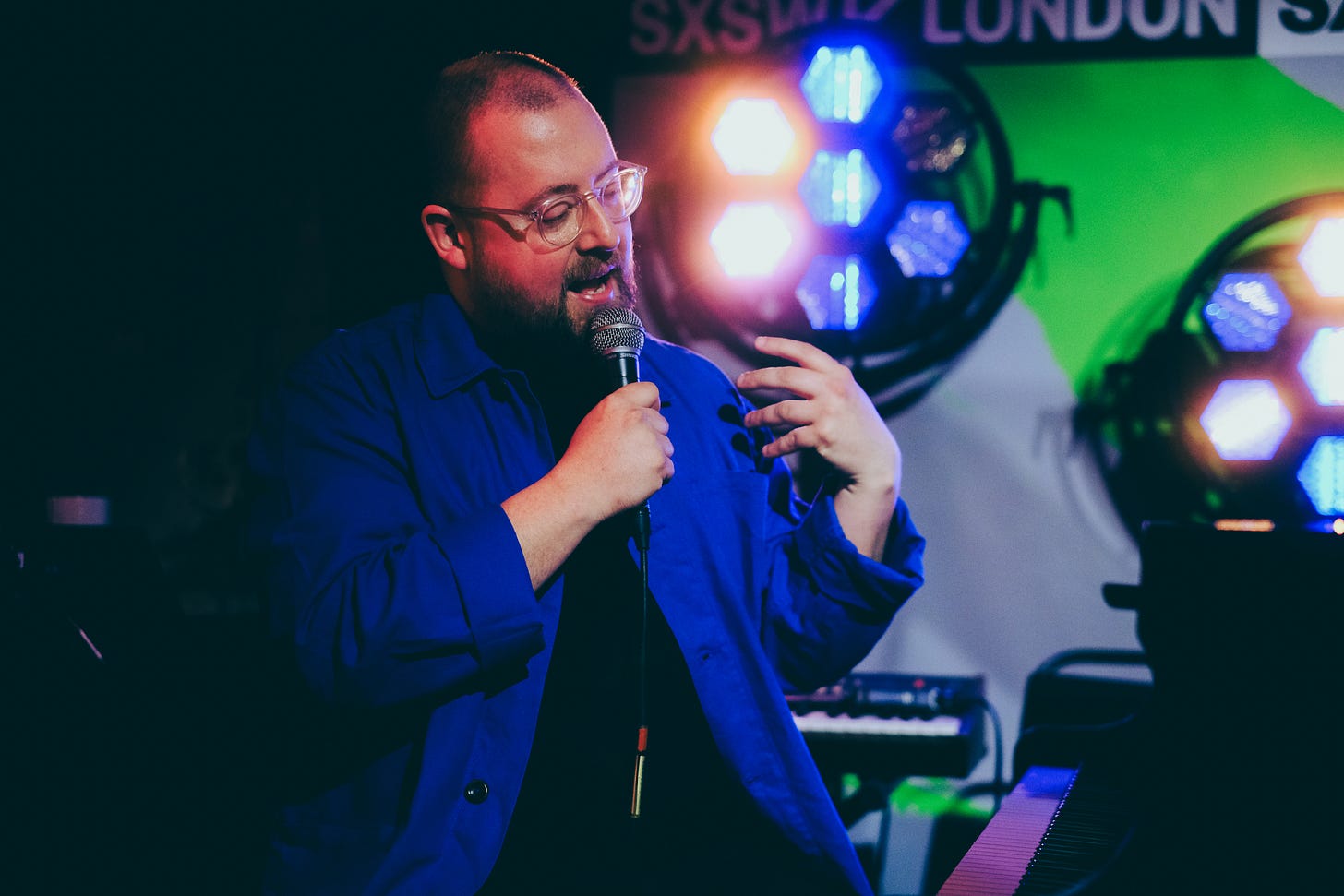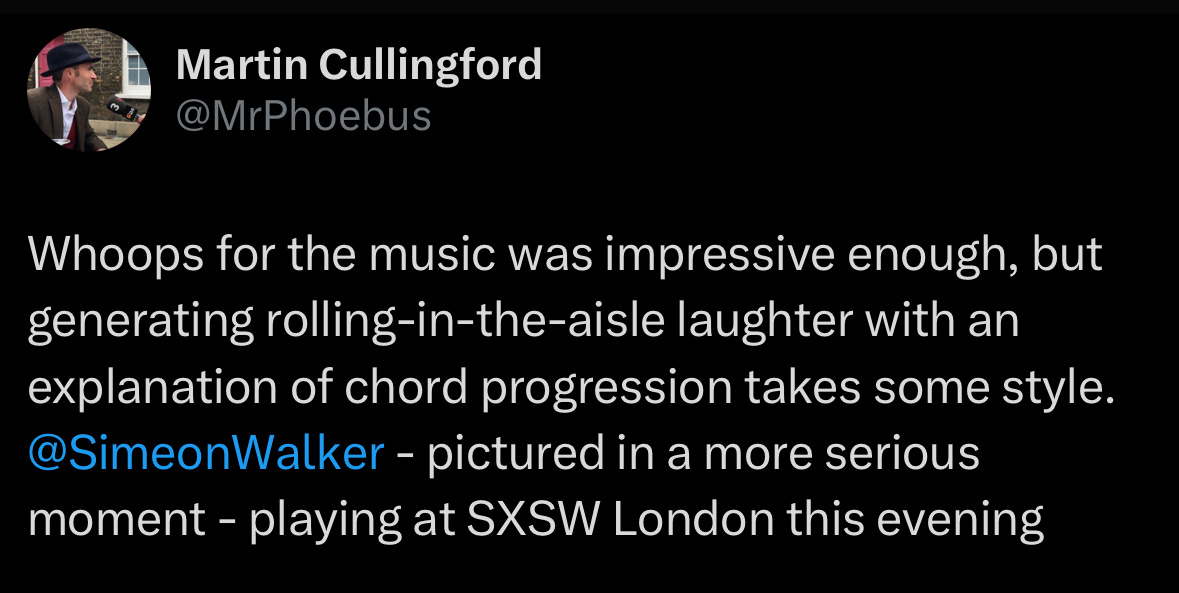“How did that happen”?
“How did I get here”?
Those of you who are drivers will, I’m sure, relate to the experience of doing a long drive, late at night, in the dark. You arrive home, and you suddenly become aware there are moments from that journey which you don’t remember.
In all honesty, I guess it’s a little on the scary side. But it does happen - you don’t remember the familiar landmark, or perhaps you have no recollection of leaving the road at the junction/exit you needed to take.
There is an element to it where instinct just takes over, and something just clicks, especially if it is a regularly driven route.
In a similar way, for musicians there are moments - not often, mind - whilst performing when something really does click, everything falls into place, and you are left with such an overwhelming sense of having nailed every aspect of the performance.
It’s quite an amazing feeling.
Almost like you are flying.
Exhilarating.
Lifegiving.
Freeing.
It’s not something that can be chased, though. Of course, there are a range of conditions which create the opportunity for it to occur, but it isn’t as simple as finding a formula, plugging it in and loading it up every time you play. Maybe we’ll just be going to AI concerts in the future where that will be the case anyway. Save us.
When Everything Clicks can feel a little like how I began this article - you get to the end, and in the moments afterwards it’s almost like you can’t remember what you have just been doing for that period of time.
You are cognitively aware of what has taken place, how you have acted and how you contributed to the occasion, but there can be a disconnect between these objective facts and a visceral, tangible awareness of your playing.
It’s the realisation you played as well as you’ve played in ages.
Almost like the notes almost played themselves.
I had one of these moments just last week. I was performing at SXSW London, and had been asked to stand-in as a last minute replacement. Perhaps it was the unusual circumstances and the adrenaline of being asked to fill-in at the last minute, added to the fact that it was a big opportunity to play at a large, industry showcase event.
Either way, it was a really special moment - where everything I played was exactly how I would wish it to be every time.
I nailed it.
Those of you who have seen me perform live will know and appreciate why this could actually be more of a tricky moment for me than you might expect.
A crucial aspect to my live performance is connection and engagement with the audience; aiming to remove the artificial barrier between myself as the performer and the audience, with a healthy dose of humour and self-deprecation. I know this might sound a little shocking, but perhaps we might even allow ourselves to have a little bit of fun.
I think there can often be a perception that these rare When Everything Clicks moments happen when we are most “at one” with ourselves, not just the instrument and our craft. My biggest fear - and I have witnessed this happen on a number of occasions - is that when this occurs, the barrier between performer and audience can be erected even higher, creating an impenetrable forcefield around the performer, who appears to be having a wonderful time by themselves, but to which no-one else is invited or seemingly welcome.
With this is in mind, I am so determined - even in these moments of Everything Clicking - that the most important part of my approach to performance around audience engagement and connection is not compromised and potentially curtailed.
In London recently, there was a total alignment between both the quality and seriousness (from the perspective of taking it seriously, not some archaic view of “serious” music) of my musical performance, and my interaction, speaking, storytelling and connection with the audience, and it is this which I was most pleased about.
Getting this balance right is so important in helping me achieve my aims of playing my music which truly is serious in its inception and performance, but doing so in a way which enables audiences to enjoy and appreciate it in a relaxed and informal manner.
So much so that the editor of Gramophone magazine, the leading title for classical music, had this to say…
For someone of his standing in the industry - especially from the established, mainstream classical world - to get it and understand what I’m trying to do is a huge win for me.
In a future post, I will address a little bit more about the rationale behind why explanations of chord progressions is even happening at all as part of my performance. One for all the geeks to look forward to!
In the meantime, I’ll keep performing as much as I can, with the aim that every performance truly does feel like this. I know there will be moments when it will feel far from this somewhat triumphant feeling, but it’s with openness and willingness to grasp it when it does arrive that I’ll keep on creating the conditions to allow this to happen.








Clearly well deserved. Look forward to seeing more dates, and I'll definitely trip along to one of your next dates.
So happy for you to have nailed it!